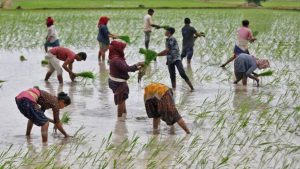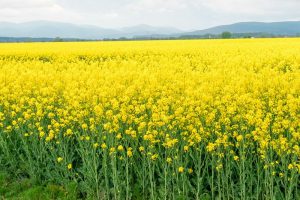As a consumer in today’s global economy, you depend on farmers and the agricultural industry more than you may realize. The farming industry provides the fundamental building blocks for our food supply and many other products. Agricultural commodities are critical inputs for the food processing industry, which then supplies the goods we find on supermarket shelves and restaurant menus. In addition, many agricultural products are exported, boosting our trade balance. Farming also spurs job creation up and down the supply chain, from equipment manufacturers to food packagers.
Although farming is often thought of as a traditional industry, it is highly innovative. New technologies like precision agriculture, biotechnology, and vertical farming are being adopted to meet the food demands of a growing global population sustainably. Investment in agriculture research and development has led to gains in crop yields, improved sustainability, and better risk management tools for farmers.
In short, agriculture powers much of the U.S. economy through the production of essential goods and services. While the number of farms has declined over time due to consolidation and mechanization, the economic impact of the farming industry continues to grow. Agriculture deserves recognition as a vital and vibrant sector fostering innovation, trade, and job creation.
The Ripple Effects of Agricultural Production and Exports
Farming supports many related industries. For every job in agriculture, there are 2.5 jobs created in other sectors like food processing, transportation, and marketing. The production and sale of farm equipment, fuel, fertilizers, and other supplies also generate economic activity and jobs.
Agricultural exports boost trade and GDP. Many countries depend on agricultural exports for a large portion of their total exports. Expanding agricultural trade deals opens up more export opportunities and economic benefits.
Farming stabilizes the economy during downturns. The agriculture industry is less susceptible to economic recessions since food is a necessity. Government support programs for farmers also provide economic stability.
Rural communities thrive when farms prosper. Farming is often the economic base for small rural towns. Successful farms support local businesses like equipment dealers, grain elevators, and retail stores. This spurs employment and activity that improves quality of life in rural areas.
In summary, agriculture powers economic activity directly and indirectly through multiplier effects that create jobs, boost trade, provide stability, and support rural communities. Although farming employs a small percentage of the population, its total economic impact is enormous. Robust agricultural production and trade are vital for the overall growth and health of economies worldwide.
Government Support and Subsidies for Farmers
Government support and subsidies provide economic assistance to farmers and the agricultural industry. These subsidies help supplement farmers’ income and support agricultural production.
Direct Payments and Crop Insurance
The government provides direct payments to farmers based on a farm’s crop production history. These payments help stabilize farm income and act as a safety net. The government also subsidizes crop insurance to help farmers manage risk. Farmers can purchase crop insurance to protect against crop losses from events like droughts, floods, and pests. The government subsidizes about 60% of crop insurance premiums, making it more affordable for farmers.
Agricultural Programs and Loans
The government funds various programs and provides low-interest loans to support farmers. Programs like the Conservation Reserve Program provide payments to farmers to take environmentally sensitive land out of agricultural production. The government also provides loans, like farm ownership and operating loans, to help farmers get started or continue operations. These programs and loans promote agricultural production, rural development, and environmental stewardship.
Also Read:- Benefits of Solar Farming: Sustainable Energy & Agriculture
Benefits and Criticisms
Government support provides economic stability and security for farmers and rural communities. However, some argue that subsidies distort the free market and give large commercial farms an unfair advantage. Subsidies can also encourage overproduction of some crops, which lowers crop prices and increases government spending. Reforms aim to make programs more targeted, efficient, and responsive to market conditions.
In summary, government subsidies and support programs provide financial assistance to farmers and promote agricultural production. Although controversial, they play an important role in supporting farmers, rural economies, and a stable food supply. Carefully crafted policies can balance these objectives while allowing market forces to function.
Conclusion
In conclusion, agriculture has a profound impact on the economy, both locally and globally. Farming generates revenue, creates jobs, and produces the food we all consume daily. By supporting your local farmers and buying seasonal produce, you are helping sustain an industry that feeds the world. Although new technologies and globalization continue to transform agriculture, the fundamental importance of farming to the economy and society remains.
So the next time you sit down for a meal, take a moment to appreciate the farmers and agricultural workers who made that food possible. They play a pivotal role in powering economic growth and deserve recognition and support. Agriculture matters because we all depend on it every day.





